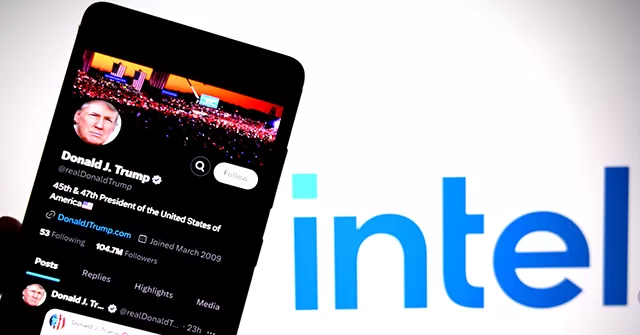Recently, the Trump administration made a bold move by announcing a ten percent stake in Intel. This decision has sparked a lot of debate and speculation, with some calling it a form of socialism. However, let us take a closer look at this move and understand why it is not socialism, but rather a financing innovation.
First and foremost, it is important to understand that socialism is a system where the government takes control of the means of production and distribution of goods and services. In simple terms, it means that the government owns and controls the businesses and industries. This is definitely not the case with the Trump administration’s investment in Intel.
The decision to take a ten percent stake in Intel is a strategic move to overcome Wall Street’s reluctance towards capital investment. In recent years, Wall Street has been solely focused on short-term gains and has shown a lack of interest in long-term investments. This has resulted in a stagnant economy, hindering growth and innovation. The Trump administration’s investment in Intel is a step towards breaking this cycle and promoting long-term investments.
It is also worth noting that the government’s stake in Intel is only a minority stake. This means that the government will not have control over the company’s decision-making processes or operations. Intel will continue to function as an independent entity, with its own management and board of directors. The government’s stake is purely a financial investment, with the aim of promoting growth and boosting the economy.
Furthermore, this move is not unprecedented. In fact, it has been successfully implemented in the past by other countries such as Japan, South Korea, and Taiwan. These countries have seen significant economic growth and development as a result of government investments in their respective technology industries. The Trump administration’s decision to invest in Intel is simply following a proven model for economic growth.
Moreover, this investment is not limited to just Intel. It is a part of the larger “America First” agenda, which aims to boost the American economy and create more jobs for its citizens. The administration has also made similar investments in other industries such as steel, coal, and agriculture. These investments have already shown positive results, with an increase in job opportunities and a boost in the economy.
In addition to promoting economic growth, the government’s investment in Intel also has national security implications. With increasing competition from countries like China in the technology sector, it is crucial for the US to maintain its dominance in this field. By investing in Intel, the government is not only supporting a leading American company but also safeguarding the country’s technological advancements and capabilities.
It is also worth mentioning that this investment is not a one-time occurrence. The government’s stake in Intel is a long-term commitment, with a focus on promoting sustained growth and development. This is a clear indication of the administration’s dedication to creating a strong and prosperous economy for its citizens.
In conclusion, the Trump administration’s decision to take a ten percent stake in Intel is not socialism. It is a strategic move to promote economic growth, create job opportunities, and safeguard national security. This financing innovation is a step towards breaking the cycle of short-term gains and promoting long-term investments. It is a clear demonstration of the administration’s commitment to putting America first and ensuring its success in the global market.

